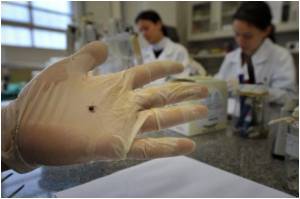Researchers at Tel Aviv University has developed a new peptide in their lab to protect and restore nerve cell communications.

But in neurodegenerative diseases like Alzheimer's, ALS, and Parkinson's, this network breaks down, hindering motor abilities and cognitive function.
Now, the new peptide, called NAP or Davunetide, developed by Prof. Illana Gozes of Tel Aviv University's Sackler Faculty of Medicine, has the capacity to both protect and restore microtubule function.
The peptide is a compound derived from the protein ADNP, which regulates more than 400 genes and is essential for brain formation, memory, and behavior.
Prof. Gozes and her team of researchers, including Dr. Yan Jouroukhin and graduate student Regin Ostritsky of TAU, observed that in mice models with microtubule damage, NAP was able to maintain or revive the transport of proteins and other materials in cells, ameliorating symptoms associated with neurodegeneration.
These findings, reported in the journal Neurobiology of Disease, indicate that NAP could be an effective tool in fighting some of the most debilitating effects of neurodegenerative diseases.
Advertisement
NAP appears to have widespread potential in terms of neuroprotection, said Prof. Gozes, who was recently awarded the Meitner-Humblodt Research Award for her lifelong contribution to the field of brain sciences.
Advertisement
Prof. Gozes noted that more research must be conducted to discover how to optimize the use of NAP as a treatment, including which patients can benefit most from the intervention.
Source-ANI











